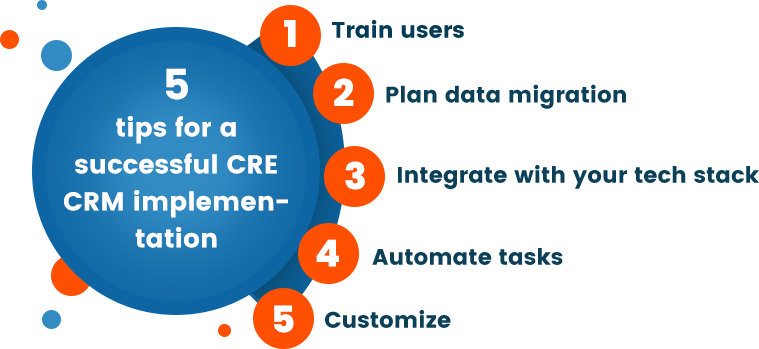25 Jun Boost Your Commercial Real Estate Business with CRM
When it comes to commercial real estate, providing a carefully curated experience for potential clients is crucial. These transactions often involve multiple stakeholders, including the C-suite, making it important to have a solid account-based marketing (ABM) approach. That’s where a customer relationship management (CRM) solution specifically designed for commercial real estate comes in handy. In this article, we’ll share CRM best practices to help you make the most of your CRM system and achieve your business goals.
What is a commercial real estate CRM?
Contrary to popular belief, not all CRMs are the same. Generic CRMs are built to cater to various industries and may lack specific functions needed for real estate. A commercial real estate CRM is an all-in-one platform that allows real estate brokers, agents, and teams to connect with prospects, sell or lease commercial properties, and nurture client relationships. It also helps manage your sales pipeline and create targeted marketing campaigns. Gain hands-on experience with a commercial real estate CRM trial and see its full potential.

Key features of commercial real estate CRM software solutions:
- Comprehensive Contact Management
- Property and Pipeline Tracking
- Scheduling and Email Integration
- Email Campaigns
- Customizable, Scalable, and Accessible
Why is using a commercial real estate CRM crucial?
Using a generic CRM or spreadsheet may seem like a simple option, but it can limit your business potential. Here’s why choosing a CRM software specifically designed for commercial real estate is important:
Streamlines contact management:
To close deals or leases successfully, an effective ABM approach is essential. Contact management plays a crucial role in achieving this. Unlike generic CRMs, a real estate CRM allows you to collect and manage crucial details such as budget, pricing, timeframe, preferred locations, property types, and prospecting segments. By having a comprehensive client profile and centralized conversations with stakeholders, you can easily manage your clients.
Maintains a Detailed Property Inventory:
Whether you represent buyers, sellers, landlords, or tenants, a CRM must have the ability to manage every aspect of property transactions. A commercial real estate CRM should keep vital property details and enable searches for matches with client and prospect requirements. Additionally, it should facilitate easy linking of contacts, companies, and properties. A robust pipeline feature allows you to monitor every stage of each transaction.
Improves personalization:
Commercial real estate CRM software provides in-depth information about prospects, empowering your team to adopt personalized communication approaches. With a deeper understanding of your clients, your marketing team can send out personalized campaigns that resonate with them.
Simplifies marketing:
CRM software with marketing automation features simplifies the implementation of marketing campaigns. You can set up trigger-based emails, drip email campaigns, and response-driven emails to generate leads and nurture prospects effortlessly.

5 ways to optimize your CRM implementation
- Train your users: Thoroughly train your team members on how to use the CRM platform to maximize its potential. This will improve employee productivity and ensure they fully understand the benefits of the system.
- Plan your CRM data migration: Before you start using a commercial real estate CRM, import all your existing data into the system. Remove any incorrect entries, duplicates, or outdated information to maintain data integrity.
- Integrate with your tech stack: Ensure that your CRM solution is compatible with the other tools and software you use, such as project management, email, sales, and accounting platforms. Integrations will streamline data transfer and improve workflow efficiency.
- Automate your tasks: Take advantage of automation features offered by your CRM to streamline repetitive tasks, such as follow-ups, email campaigns, and lead management. This will free up your time to focus on building relationships with prospects and clients.
- Customize to fit your needs: Customize your CRM to suit your exact requirements. Add custom fields to collect crucial contact details, customize the interface, create email templates for marketing automation, and choose the deployment option that works best for your business.
Grow your commercial real estate business with Act!
By implementing these CRM best practices for your commercial real estate business, you can streamline contact management, maintain a detailed property inventory, improve personalization, and simplify your marketing efforts. Don’t settle for a generic CRM or spreadsheet that may limit your business potential. Instead, choose a CRM software specifically designed for commercial real estate to maximize your success.
Ready to take your commercial real estate business to the next level? Take a test drive of Act! now and experience how it can skyrocket your sales while making your team’s lives easier.
And, remember, when it comes to managing your customer relationships and driving business growth in the commercial real estate industry, a purpose-built CRM solution like Act! is your best partner. Embrace the power of Act! for Commercial Real Estate and watch your business thrive.

